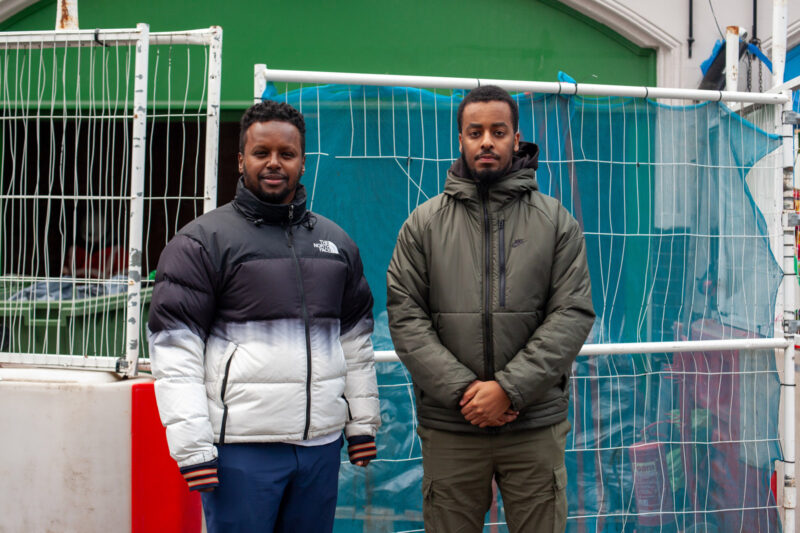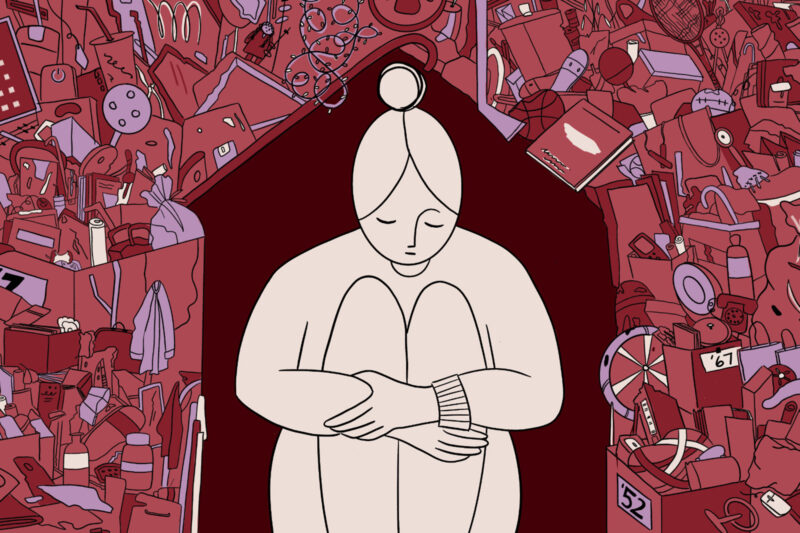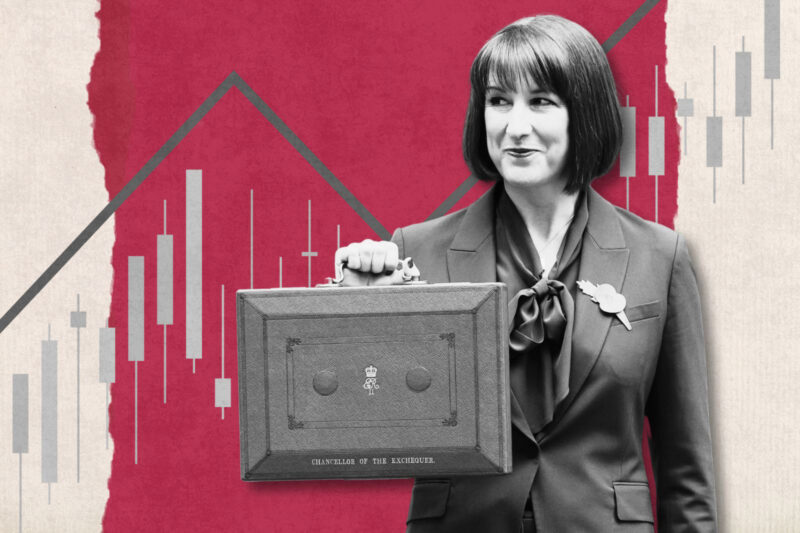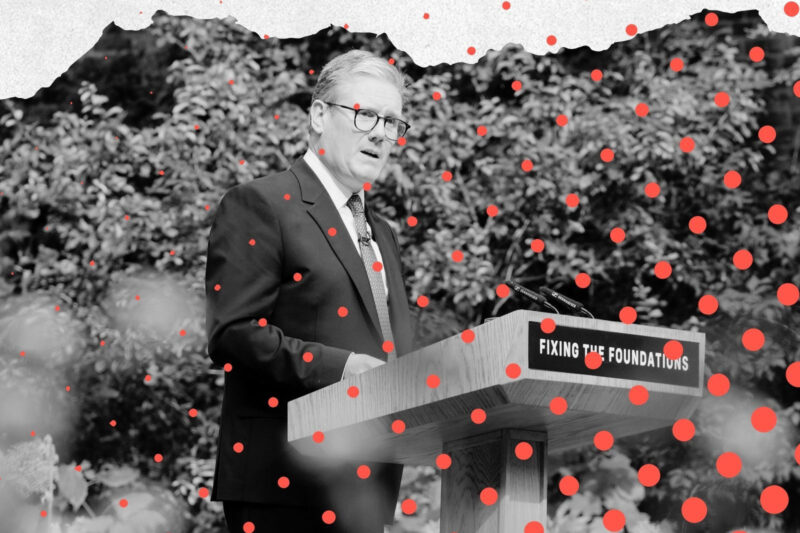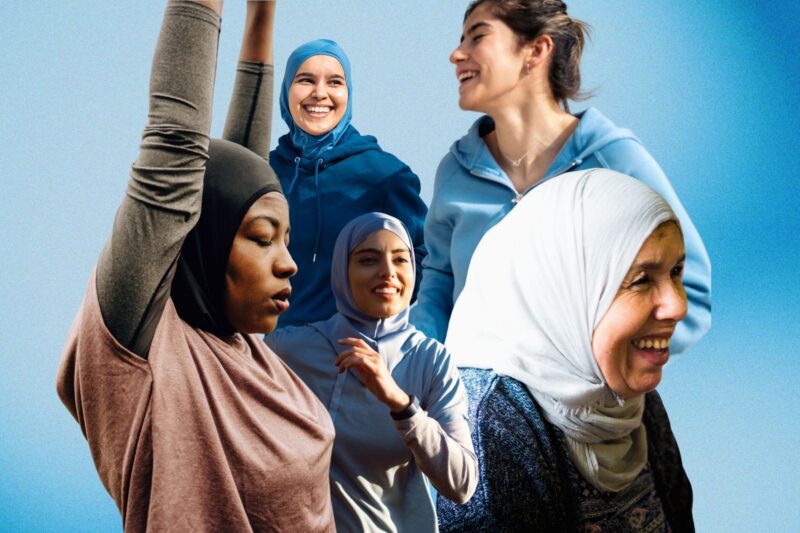Muslim-led projects to beat loneliness saved Britain £56m last year
Study links health problems including depression and even heart attacks to loneliness — but finds groups like Sisters4Islam are reaching those in need
–

Muslim-led initiatives tackling loneliness are saving Britain an estimated £56m a year and have helped more than 55,000 people, according to a report by a UK thinktank.
The work of Muslim-led organisations including food banks, women’s groups, peer-to-peer support networks and volunteering projects has saved the public purse millions by keeping people healthy, reducing pressure on the NHS and the workforce, Equi found in a paper published last week.
According to data released in January 2024 by the Office for National Statistics, more than a quarter of adults in the UK reported feeling either occasionally or frequently lonely, while 7% of the population felt lonely always or often. This has had a significant impact on the NHS — on average, people experiencing chronic loneliness require an additional £672 worth of healthcare each year, Equi found.
Researchers at the thinktank say that chronic loneliness “is a mental health issue that contributes to several health risks including heart attacks and other diseases”. Previous research has linked loneliness to depression, anxiety and heart disease.
A significant trigger of loneliness in Muslim communities — estimated at a cost of more than £150m a year — is deprivation. According to the report, people often can’t afford to take part in social activities and are living in areas that lack government funding for regeneration. The cost-of-living crisis has also left many young Muslims unable to secure stable careers or find affordable housing, meaning that they’re having to postpone marriage and starting families.
Sisters4Islam, based in Leicester and run by Muslim women, has been working to tackle loneliness in the city, which is home to one of the UK’s largest Muslim populations.
Dr Fatihiya Saad, community outreach manager at the organisation — one of 14 whose work was studied for the report — said it was established to bring together people from different backgrounds.
“The Somalis would do their own, the Swahilis would do their own, the Asians would do their own, so we felt that we needed to get something that would cut across all these barriers,” she said.
The initiative started in 2009 with coffee mornings and soon expanded to day trips, summer schemes for children, and pampering evenings. “We’ve tried to make it welcoming to all cultures,” Saad said. “Everyone is welcome, Muslim or non-Muslim, from any ethnic community.
“That was what we aimed to do — just to have women get together, chill, relax, especially people from lonely backgrounds. Especially those who’d come from other countries, like asylum seekers, or others who had immigrated into the UK for other reasons but had not integrated into the community, so they felt left out. Sisters4Islam has tried to address those barriers.”
Other triggers identified by Equi include geographical isolation, poor support networks and anti-Muslim hatred and discrimination — particularly after the Islamophobic riots of summer 2024, which intensified many Muslim people’s feelings of alienation and exclusion.
The report found that isolation and poor support networks are often more likely to affect Muslims owing to experiences that are unique to being Muslim in Britain, such as being excluded from alcohol-centric university or work events, cultural stigma, and living in deprived areas that face higher costs and greater distances to crucial services. However, the report also noted that not all of these systemic challenges are unique to Muslims and affect the wider population to “varying degrees”.
“Loneliness is not a primary problem but rather a by-product of many other intersectional problems in society,” wrote the report’s authors Elizabeth Teixeira and Dr Mohammed Sinan Siyech.
Saad told Hyphen the impact of their organisation’s work had been life-changing for some women. “There was one woman who was very timid. She couldn’t even speak or look at people in public. Then we took her in as a volunteer to be our admin. And we watched her thrive until she became part of our radio show and she was very confident speaking on radio. She said she felt that the fact that we pushed her with our activities and being like our public relations person helped her gain confidence, and she’s now thriving.”
She also added that women coming to the group seeking help with loneliness have come away from the meetings with “lifelong friendships”.
According to Equi’s report, almost 15,000 predominantly Muslim women have benefited from Muslim-led organisations — the value of their therapy, emotional support sessions, legal clinics and other services is estimated at about £2m annually.
Teixeira, lead researcher of Equi’s loneliness report, said: “One major learning for us was the clear benefit of having faith-literate policy and practice in place when tackling loneliness and mental health. Putting this in place at a national scale would save many millions in public money and deliver better health outcomes.
“I hope that future research can expand on the findings of this report to ensure that no marginalised group in the UK goes unseen and unheard.”
 Newsletter
Newsletter


